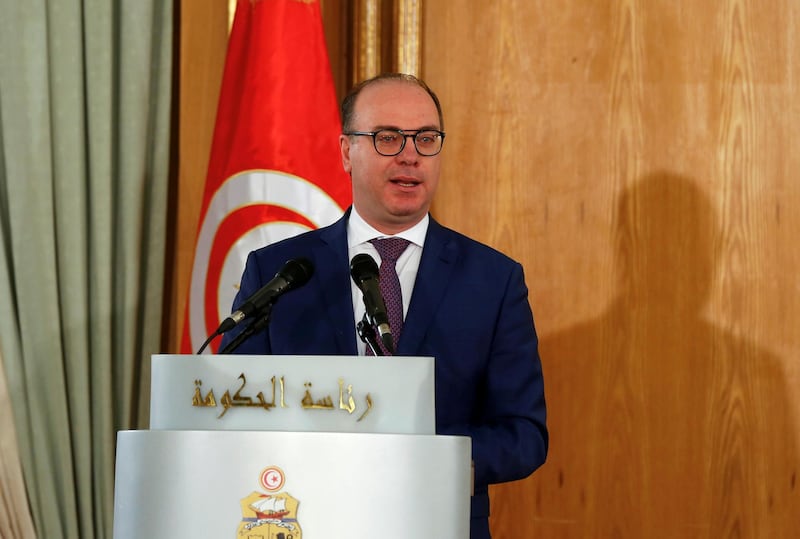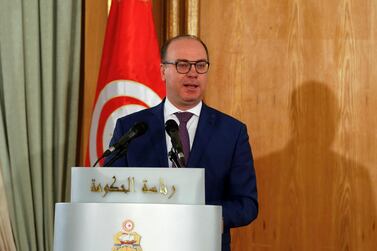Tunisia’s Prime Minister Elyes Fakhfakh has resigned in the latest twist of a rolling crisis that has engulfed much of the country’s political class.
The president now has one week to appoint a successor, who will then have a month to form a government capable of commanding a majority across a fractious parliament. Should parliament prove unable to agree on a new government, the body will be dissolved and new elections held within 90 days.
At the time of his resignation, Mr Fakhfakh was facing a motion to withdraw confidence in the prime minister sponsored by rivals Ennahda. The vote had been expected to pass had Mr Fakhfakh not resigned.
The allegations against Mr Fakhfakh centre on his alleged involvement in businesses that had secured government contracts worth $15 million (Dh55 m). Mr Fakhfakh denies any wrongdoing.
In an indication of the febrile nature of current Tunisian politics, Ennahda’s leader and parliament speaker, Rashid Ghannouchi, is also facing a motion of censure of his own. Mr Ghannouchi is accused by rivals of 'exceeding his prerogatives' in the course of his duties.
Tunisian media reported Mr Fakhfakh had been asked to resign by the President after a meeting with the leader of the powerful UGTT union, Noureddine Tabboubi, and Mr Ghannouchi earlier on Wednesday.
"It's unlikely Fakhfakh could have survived as prime minister amidst the conflict of interest allegations," Dr Sharan Grewal, a non-resident fellow at the Brookings Institution told The National. "Both the president and the government were championing anti-corruption agendas. The only ally Fakhfakh had left was President Kais Saied, and Saied's entire image is based on a clean, incorruptible personality.
“Even if Fakhfakh was eventually exonerated, Saied would have been tainted in the meantime had he stuck by him further,” he added.
Mr Fakhfakh has only been in post since February, after the President tasked him with forming a broad coalition government capable of steering Tunisia out of political crisis. The appointment came after Ennahda, who secured a plurality in last year’s legislative elections, failed to form a government of their own.
The task now before the president is unenviable. Division with parliament has rarely been more pronounced, with ill feelings running deep. From this, President Saied must appoint a figure capable of commanding the broad support of the fractious and volatile body.
While Ennahda may be hopeful that they can play a considerable role within that government, they must first face the censure motion against their own leader, as well as overcome resistance within parliament, not least from the Free Destourian Party, who fiercely oppose the Ennahda's presence within the body.
“The petition to withdraw confidence from Ghannouchi as speaker of parliament will likely continue, but those simultaneous developments have made clear to Ennahda that the current coalition partners are unreliable.” Dr Grewal said, referencing the support given to the motion against Mr Ghannouchi from nearly all of Ennahda’s allies in government.
“Moving forward, Ennahda will likely deepen its parliamentary alliance with the Karama Coalition and Qalb Tounes, both to retain Ghannouchi's seat as speaker and potentially to form the government,” Dr Grewal said.






